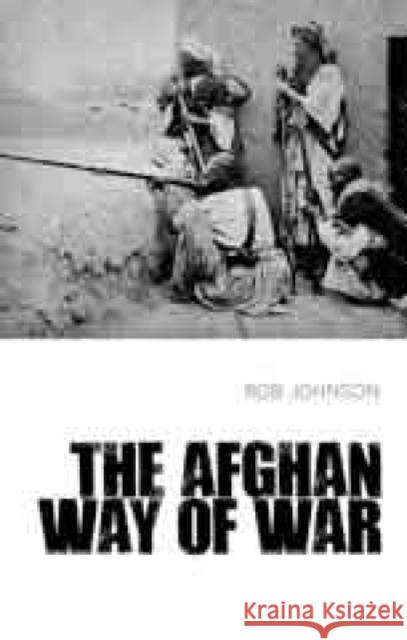The Afghan Way of War : Culture and Pragmatism: A Critical History » książka
The Afghan Way of War : Culture and Pragmatism: A Critical History
ISBN-13: 9781849043762 / Angielski / Miękka / 2014 / 256 str.
Readers of this book are presented with a novelty, namely the Afghan perspective on the successive military and counterinsurgency campaigns that the British, Russians and Americans/Coalition have fought against the Afghans, from the first encounter in the 1830s to today's ongoing war waged by the Taliban. Included in the narrative is the wider Pashtun population that lived astride the British Imperial/Pakistan border, not just those Pashtuns resident in the modern state of Afghanistan. The literature on the Afghan wars and frontier actions is almost entirely Anglo-centric and 'agency' on the part of Afghans/Pashtuns is almost entirely absent. Even modern accounts by journalists, former soldiers, policy-makers and commentators have tended to reduce the Afghans and Pashtuns to stereotypes and deprive them of any initiative. Ironically their nineteenth-century contemporaries were rather more generous in their appraisal of their fighting prowess. Rob Johnson therefore presents more than just another military history of the Afghan Wars; he seeks to open a new chapter in the debate about Afghanistan and, crucially, aims to 'tell the story' from the Afghan side, countering the inaccurate and sometimes rather fanciful interpretations of events, in order to present a more precise and utilitarian account of the military history of the Afghans. Successive chapters illustrate the various methods adopted by the Afghans to confront their enemies, focussing on a limited number of themes to create coherence. Collectively, they demonstrate that the 'Afghan Way of War' was eminently pragmatic, but that the spirit by which Afghans fought the British, or the Soviets, or each other, was coloured by a cultural code. In recent decades, that code has been altered and eroded dramatically so that in the last ten years what has been paramount is the Afghans' sense that they are resisting coercive governance, foreign influences and ideas and occupation.











